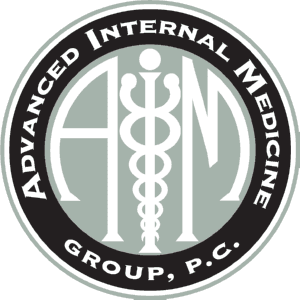Your kidneys might not get as much attention as your heart or your brain, but they quietly play a critical role in keeping your entire body running smoothly. They filter your blood, regulate fluid levels, balance electrolytes, and help manage blood pressure. So when something throws your body off balance—like chronic stress or dehydration—it doesn’t take long before your kidneys start to feel the effects.
If you’ve ever had a kidney stone, a urinary tract infection, or even just a dull ache in your lower back after a long day without enough water, you already know how sensitive these organs can be. But even if you’ve never had obvious symptoms, it’s worth paying attention to how your lifestyle can either protect or strain your kidney health.
Dehydration: A Quiet Strain on the Kidneys
Water is essential for kidney function. These organs filter around 50 gallons of blood every single day, removing waste and excess fluids that leave the body as urine. Without enough water, this process becomes less efficient—and in the long run, potentially dangerous.
Mild dehydration might not seem like a big deal. You get thirsty, you drink a glass of water, and move on. But repeated or prolonged dehydration can make your urine more concentrated, which increases the risk of developing kidney stones or urinary tract infections. Over time, it can even lead to reduced kidney function.
Signs of early dehydration include:
- Dry mouth or throat
- Dark yellow urine
- Fatigue
- Headaches
- Dizziness or lightheadedness
If you’re only drinking water when you’re already thirsty, you might already be behind. A better approach is to sip throughout the day and pay attention to how your body feels, especially in hot weather, after exercise, or when you’re sick.
Stress: The Hidden Connection to Kidney Health
Unlike dehydration, stress doesn’t seem like something that would directly affect your kidneys—but it can and does. Chronic stress prompts the body to release hormones like cortisol and adrenaline. These hormones affect blood pressure, heart rate, and fluid retention—all of which can put additional pressure on the kidneys.
When stress becomes a regular part of life, it can contribute to high blood pressure. This is one of the leading causes of kidney disease. It narrows and damages the blood vessels in the kidneys, making it harder for them to filter waste properly. Stress can also influence behaviors that hurt kidney health: skipping water, poor sleep, eating more processed foods, or relying on stimulants like caffeine.
Even if you’re otherwise healthy, it’s not uncommon to notice signs like:
- Increased or decreased urination
- Trouble sleeping
- Elevated blood pressure
- Fatigue
- Tension headaches
All of these can be signs that your body—and by extension, your kidneys—are working harder than they need to.
How to Protect Your Kidney Health
The good news is that your kidneys are remarkably resilient, and small changes in daily habits can make a big difference. Here are a few simple ways to support them:
1. Stay Hydrated—Consistently
Aim for steady water intake throughout the day. Most people do well with about 8 cups daily, though your needs may vary depending on your activity level, diet, and environment. Clear or light-yellow urine is usually a good sign you’re getting enough fluids.
2. Cut Back on Salt and Processed Foods
High sodium intake can increase blood pressure and cause fluid retention, making your kidneys work harder. Try cooking more meals at home and using fresh herbs, lemon juice, or vinegar for flavor instead of relying on processed seasonings or canned foods.
3. Be Mindful of Over-the-Counter Medications
Pain relievers like ibuprofen and naproxen can strain your kidneys when used frequently. While they’re fine for occasional use, taking them daily—or in higher doses—can cause long-term damage, especially if you’re dehydrated at the same time. If you find yourself reaching for these medications often, it’s worth discussing alternatives.
4. Manage Stress in Everyday Ways
Stress management doesn’t have to mean big life overhauls. It can be as simple as taking a short walk, practicing deep breathing for a few minutes, or unplugging from devices in the evening. Small, consistent moments of calm can make a big difference over time.
5. Move Your Body Regularly
Exercise supports healthy blood pressure and helps manage stress. It doesn’t have to be intense—a brisk walk, stretching, or a few flights of stairs here and there all count. The goal is consistency, not perfection.
6. Listen to Your Body
If you’re noticing frequent fatigue, changes in urination, or swelling in your legs or ankles, it might be time to check in. These can be subtle signs of kidney stress and worth bringing up before they become more serious.
Hydration and Stress: A Two-Way Relationship
Here’s something that surprises a lot of people: dehydration can increase stress levels, and high stress can lead to dehydration. When you’re stressed, you may not feel thirsty, even when your body needs water. At the same time, dehydration can affect mood, focus, and energy—making your stress feel even worse. This creates a cycle that can wear down both your mind and your kidneys over time.
Breaking that cycle doesn’t require drastic changes. It just takes some attention. Keep a reusable water bottle within reach, take mindful breaks during the day, and try to catch small signals from your body before they become big problems.
Looking Ahead
You don’t have to overhaul your lifestyle to take better care of your kidneys. In fact, the most effective strategies are usually the simplest. Staying hydrated, managing stress, and making mindful choices can help your kidneys continue doing their job—quietly, efficiently, and in the background—just as they’re meant to.
When your body feels a little off or run down, it’s okay to take that as a cue to slow down, rest, and recalibrate. Your kidneys will thank you for it—whether you realize it or not.
AIM Group Offers Primary Care & House Calls In East Hills, NY
At Advanced Internal Medical Group in East Hills, NY we have 40 years of experience providing care with over 20 services in primary care, house call appointments, and more. To learn more about any of our services, call 516-352-8100 to speak with one of our team members.

